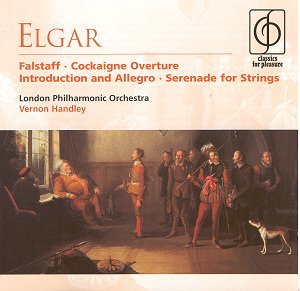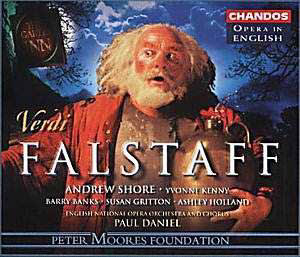 Composer: Sir Edward Elgar (1857-1934)
Composer: Sir Edward Elgar (1857-1934)
Works: Overture: Cockaigne; Serenade for Strings; Introduction and Allegro; Falstaff
Performers: London Philharmonic Orchestra; Vernon Handley, conductor
Recording: 27-28 Sept 1978, St Augustine’s Kilburn, London (Cockaigne, Falstaff); 30-31 January 1983, Watford Town Hall (Serenade, Introduction and Allegro)
Label: Classics for Pleasure CFP 5 75307 2
Sir Edward Elgar, a titan of the English musical landscape, occupies a revered position in the classical canon, particularly celebrated for his orchestral works that blend lyrical beauty with complex emotional depths. The present recording, featuring the London Philharmonic Orchestra under the baton of Vernon Handley, presents a compelling selection of Elgar’s oeuvre, notably the tone poems “Cockaigne” and “Falstaff,” alongside the string compositions “Serenade for Strings” and “Introduction and Allegro.” This reissue offers a valuable opportunity to explore these works through the interpretative lens of Handley, whose credentials as an Elgar conductor have long been esteemed.
Handley’s approach to “Falstaff” reveals the work’s multifaceted character. The orchestration, rich in texture, benefits from the London Philharmonic’s robust sound, which captures both the exuberance and the wistful introspection inherent in Elgar’s score. The balance within the orchestra allows for a clear delineation of thematic material, with the brass section conveying a heroic quality that contrasts beautifully with the delicate woodwinds. Yet, while the performance is secure, it lacks the incandescent fervor found in Barbirolli’s iconic interpretation, which remains a touchstone for this complex and demanding score. The dream interludes, moments of intimacy amidst the orchestral exuberance, resonate with a keen sensitivity under Handley’s direction, although they could delve deeper into the psychological nuances of Falstaff’s character.
In “Introduction and Allegro,” the string players exhibit commendable precision, although Handley’s interpretation does not quite achieve the ethereal charm delivered by the Academy of St Martin in the Fields under Sir Neville Marriner. The outer movements, while technically proficient, lack the wistfulness that characterizes the best renditions, though the slow movement shines with eloquence and emotional depth. This section, a precursor to Elgar’s later masterpieces, showcases the strings’ ability to convey profound sentiment, which Handley captures with commendable clarity.
“Cockaigne,” on the other hand, stands as a central pillar of Elgar’s orchestral output, and Handley’s direction here is particularly noteworthy. The energetic and exuberant character of the work benefits from judiciously judged tempi and an infectious rhythmic vitality that evokes the spirit of Edwardian England. The precision of the orchestra in executing the intricate passages is matched by the engineering quality of the recording, which offers an atmospheric soundscape, allowing the percussion to make a striking impact. The clarity of the recorded sound enhances the listening experience, bringing the listener closer to the vibrant orchestral colors that Elgar so masterfully crafted.
This collection not only serves as an excellent introduction to Elgar for the uninitiated but also stands solidly within the context of the composer’s oeuvre. The recordings, particularly of “Cockaigne” and “Falstaff,” reaffirm Handley’s authority and the London Philharmonic’s commitment to delivering a nuanced interpretation. While some performances may not reach the heights of the most celebrated versions, the overall quality and the value offered at the budget price make this disc a commendable addition. Handley’s interpretations, marked by their assurance and musicality, provide a rich tapestry through which to engage with Elgar’s world, making this collection a rewarding experience for both newcomers and seasoned listeners alike.



